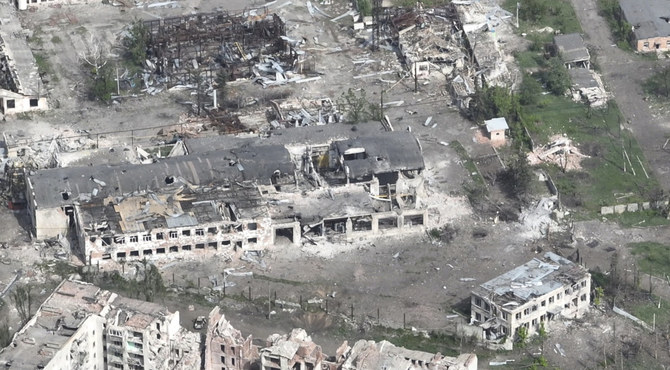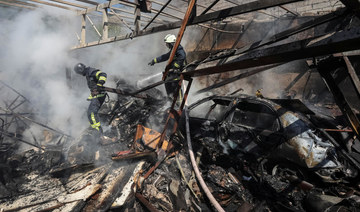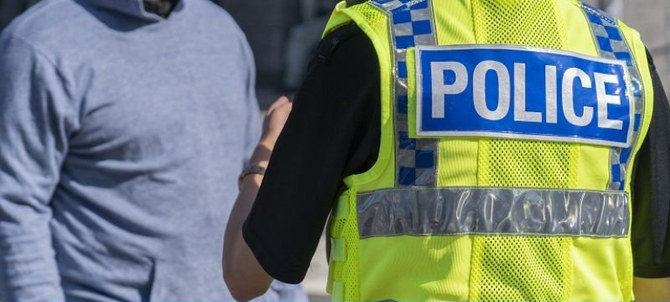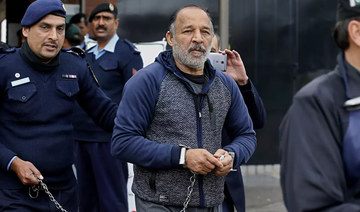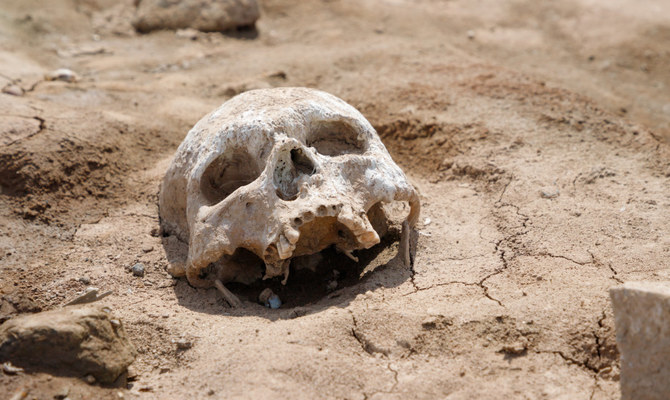ST. JOHNSBURY, Vermont: US President Joe Biden and Canadian Prime Minister Justin Trudeau on Friday announced a plan to close a loophole to an immigration agreement that has allowed thousands of asylum-seeking immigrants to move between the two countries along a back road linking New York state to the Canadian province of Quebec.
So many migrants since early 2017 have walked into Canada on Roxham Road outside Champlain, New York, that the Royal Canadian Mounted Police staffed a reception center to process them, less than five miles (8 kilometers) from the official border crossing.
Mounties have warned the migrants at the end of the narrow two-lane road bordered by forests and farm fields that they would be arrested if they crossed the border. But once on Canadian soil, they have been allowed to stay and pursue asylum cases that can take years to resolve.
The new policy says that asylum seekers without US or Canadian citizenship who are caught within 14 days of crossing anywhere along the 3,145-mile (5,061-kilometer) border will be sent back. That includes people walking on Roxham Road.
The deal was set to take effect at 12:01 a.m. Saturday — a quick implementation aimed at avoiding a surge of refugee claimants trying to cross, according to Canadian officials who spoke on condition of anonymity to discuss the deal in advance.
Some of the last migrants to make it through before the Biden-Trudeau announcement were about eight people in two families — one from Haiti, the other from Afghanistan — who arrived at the US end of Roxham Road just after dawn on Friday. Both said they took circuitous routes to get there.
Gerson Solay, 28, carried his daughter Bianca up to the border. He said he didn’t have the proper documents to remain in the United States. “That is why Canada is my last destination,” he said before he was taken into custody for processing.
It’s unclear how Roxham Road became a favorite route, but it’s just a taxi ride from where Interstate 87 approaches the Canadian border, and for southbound migrants, it’s a relatively short distance to New York City.
These migrants have taken advantage of a quirk in a 2002 agreement between the US and Canada that says asylum seekers must apply in the first country they arrive in. Migrants who go to an official Canadian crossing are returned to the US and told to apply there. But those who reach Canadian soil somewhere other than a port of entry — like the center near Roxham Road — are allowed to stay and request protection.
The agreement was immediately criticized by some who feel it could endanger the safety of asylum seekers by preventing them from getting needed support from both governments.
“We urge President Biden to strongly reconsider this deal and to work with Congress to restore access to asylum and support policies that recognize the dignity of all those arriving at our borders,” said Danilo Zak, associate director for policy and advocacy for the humanitarian group CWS, also known as Church World Services. The organization advocates for people across the world who have been forced from their homes.
The agreement comes as the US Border Patrol responds to a steep increase in illegal southbound crossings along the wide-open Canadian border. Nearly all happen in northern New York and Vermont along the stretch of border nearest Canada’s two largest cities, Toronto and Montreal.
While the numbers are still tiny compared to the US-Mexico border, it’s happening so frequently now that the Border Patrol increased its staffing in the region and has begun releasing some migrants into Vermont with a future date to appear before immigration authorities.
As part of the deal, Canada also agreed to allow 15,000 migrants from the Western Hemisphere to seek asylum on a humanitarian basis over the course of the year.
Meanwhile, southbound migrants are straining US border officials.
US Border Patrol agents stopped migrants entering illegally from Canada 628 times in February, more than five times the same period a year earlier. Those numbers pale compared to migrants entering from Mexico – where they were stopped more than 220,000 times in December alone — but it is still a massive change in percentage terms.
In the Border Patrol’s Swanton Sector, which stretches across New Hampshire, Vermont and a portion of upstate New York, agents stopped migrants 418 times in February, up more than 10 times from a year earlier. About half entering from Canada have been Mexicans, who can fly visa-free to Canada from Mexico.
About an hour south of the border, the police chief in St. Johnsbury, Vermont, population 6,000, alerted state officials that the Border Patrol had dropped off a vanload of immigrants with just a few minutes notice at the community’s welcome center. The same thing happened several times before within the last few weeks.
In a statement, US Customs and Border Protection said the migrants dropped off in St. Johnsbury had been apprehended along the border after entering the US without authorization, and were given a notice to appear for later immigration proceedings.
They were dropped off in St. Johnsbury because it has a station where migrants can take a bus to a larger city.
“In such circumstances, USBP works in tandem with local communities to ensure the safety of all parties— both community members and migrants— and to ensure stability in the community’s resources,” the statement said.
But local officials said they weren’t given time to prepare. State officials are now working to set up a system to provide migrants services they might require.
On Thursday, a Haitian couple and their children, boys aged 17 and 9 and a 15-year-old girl, were dropped off at the welcome center. The family, who did not want to give their names, wanted to take a bus to Miami.
They said they’d been in Canada for two months, but wouldn’t talk about what prompted them to keep moving.
They missed the Thursday bus that would allow them to connect to a bus to Boston, where they could catch another bus to Miami. A team of local volunteers spent the day getting them something to eat, finding them a place to stay the night and arranging for them to take the bus on Friday.
Police chief Tim Page said St. Johnsbury wants to help these migrants, but not on the fly.
“We need to get something down so we know what we are going to do when these families arrive,” he said. “We don’t have a system set yet, so when we do I am sure this will all go a little smoother.”






